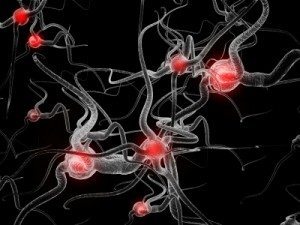What is Trauma and How Can Christian Counseling Help? Part 2
Erik Mildes

Part 2 of the Making Marriage Work Series
In Part 1, we discussed what trauma is and the different experiences that may lead someone to experience trauma. It is now important that we address our brain’s natural response to trauma, and how important it is to work through those experiences so that we can create new pathways and connections in our thought process and our feelings.
So let’s explore the feeling of “threat” from a psychological standpoint. When a person feels threatened, the sympathetic nervous system arouses causing adrenaline to kick in and go into high alert focusing on the immediate situation. Sometimes, the thread can alter ordinary perceptions or needs. For example, people in dangerous situations can easily ignore hunger, fatigue, or pain. Threat also brings about extreme feelings of fear and anger. In her book, Trauma and Recovery, Judith Herman reminds us that, “These changes in arousal, attention, perception, and emotion are normal, adaptive reactions. They mobilize the threatened person for strenuous action, either in battle or in flight.”
Judith Herman says, “Traumatic reactions occur when action is of no avail. When neither resistance nor escape is possible, the human system of self-defense becomes overwhelmed and disorganized.”
These reactions are what we refer to as post-traumatic stress disorder (PTSD). A term once used only for war veterans is now recognized as a result of any trauma. PTSD affects children, men, and women. Symptoms vary, but it is important to recognize when PTSD is a reality so that one can get help.
There is a saying, “Time heals all wounds.” However, when it comes to trauma, time does not heal all wounds. One simply does not forget the effects of trauma and come out unharmed or unchanged after time has gone by. On the contrary, the effects of the traumatic experience prevail, encouraging the symptoms and unhealthy behaviors.
A person that has experienced trauma may react in puzzling ways in situations that for other people are non-threatening. However, if the environment is in any way similar to the traumatic event, the emotional responses of the trauma take over. Those brain pathways are powerful, and they naturally fire the same responses from the past. Herman reminds us that, “Traumatic events produce profound and lasting changes in psychological arousal, emotion, cognition, and memory.”
Because these connections happen in the brain, they create certain pathways to our thinking processes, how we handle our feelings, and how we respond to situations that are outside of our control. Since those connections result from traumatic events, often times they become barriers to healthy responses. In order to function in life, it is crucial to learn healthy ways to cope with the trauma, as well as create new pathways in our brain that lead us to respond in appropriate ways even when we find ourselves under stressful circumstances.
Counseling can help a person cope with the trauma they experienced. Our brain is powerful, and we often seek ways to protect ourselves from harmful memories. Sometimes, a traumatized person may experience intense emotion without clearly remembering the event, or they may remember everything in detail but feel no emotion. A counselor can help a person make those connections necessary to begin recovery.
If you have experienced trauma in your life, most likely you are living with many symptoms as a result of your painful experience. Maybe you are dealing with depression, anxiety, anger, an inability to form close connection to other people, or a feeling that you cannot talk to anyone about your feelings or the event that took place. Christian counseling can help you make sense of your feelings, and offer you hope for healing. You do not have to live under the dark cloud of the trauma, there is freedom for you, and there is hope.
Image
Courtesy of renjith krishnan/freedigitalphotos.net




